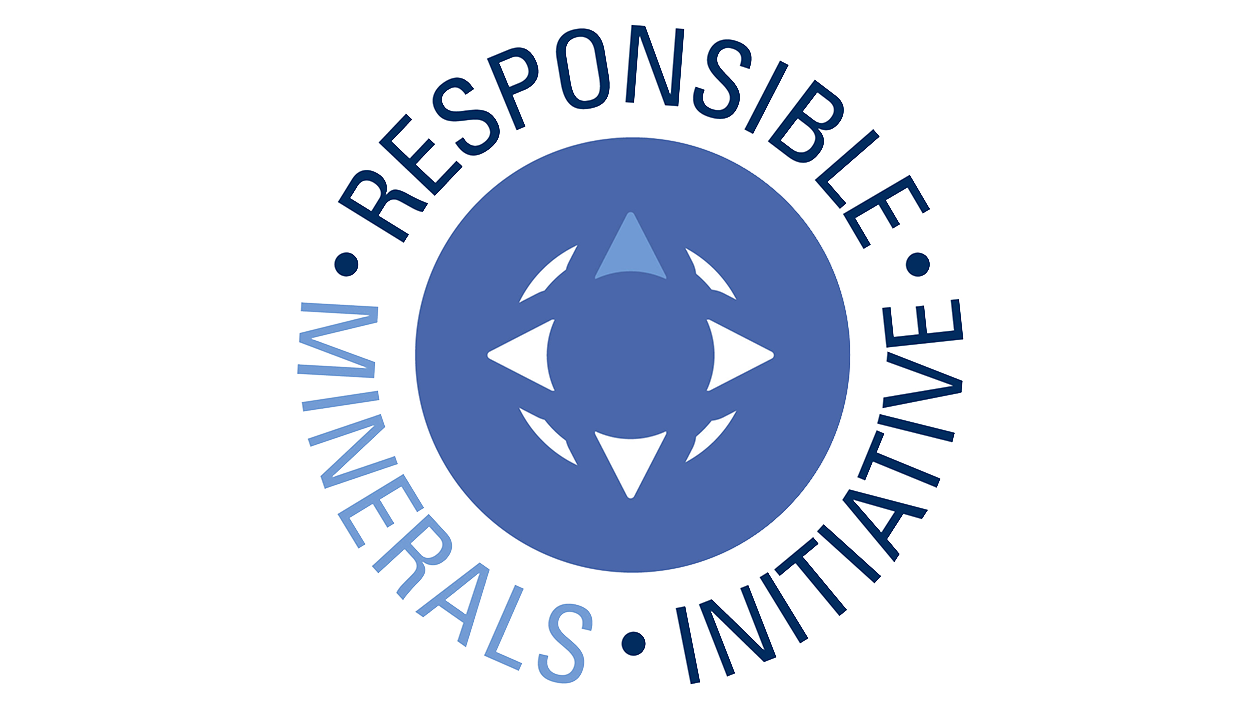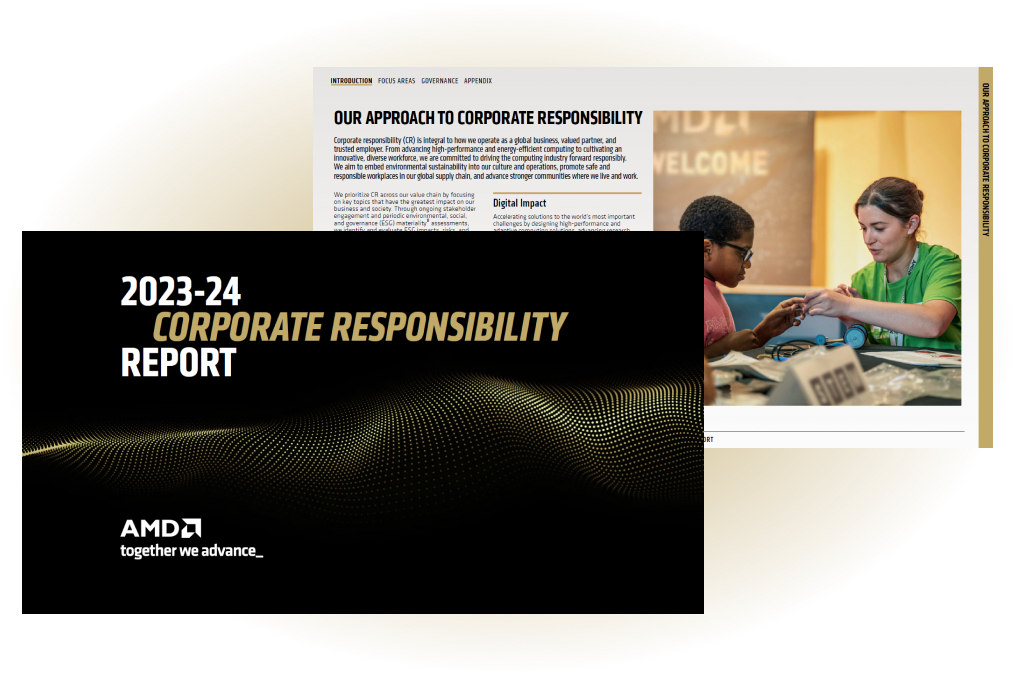Overview
Tracing the origin of minerals to the point of extraction is a complex challenge but is essential to a responsible and resilient supply chain. We expect our Manufacturing Suppliers to conduct business in accordance with the AMD Worldwide Standards of Business Conduct and Supplier Code of Conduct. We require these suppliers to communicate the same expectations to their suppliers in turn and implement reasonable mechanisms to monitor their compliance. “Manufacturing Suppliers” are defined as suppliers that that AMD buys from directly and that provides direct materials and/or manufacturing services to AMD.
Tin, tantalum, tungsten, and gold (3TG) are integral to electronic products. The mining, sale, and use of minerals from conflict-affected and high-risk areas (CAHRAs), including the Democratic Republic of the Congo and adjoining countries, have been associated with negative social and environmental impacts. These include the funding of violent groups associated with committing human rights abuses.
Our efforts to break the link between the minerals trade and conflict in the Democratic Republic of the Congo began in 2008. As we learn more about potential social and environmental impacts, we continue to assess our supply chain, and we have prioritized minerals beyond 3TG and cobalt for additional due diligence.

Multi-Stakeholder Collaboration
AMD has been a member of the Responsible Minerals Initiative (RMI) since it was founded in 2008. Through RMI, we connect with industry members, governments, non-profits, and other stakeholders to contribute to mitigating the salient social and environmental impacts of the extraction and processing of minerals used in supply chains. The RMI is a central actor that helps members advance responsible mineral sourcing by creating common tools, assessments, training, and on-the-ground projects for suppliers to the electronics industry and beyond. We encourage our supply chain to utilize RMI tools and best practices to ensure industry alignment across the value chain.

Our Approach
Our approach to responsible mineral sourcing is rooted in respect for human rights. As outlined in the AMD Responsible Minerals Sourcing Policy, AMD adopts the Organization for Economic Cooperation and Development (OECD) Due Diligence Guidance for Responsible Supply Chains of Minerals from Conflict-Affected and High-Risk Areas (OECD Guidance) as a framework for our program. As industry standards shift to a broader set of ESG risk indictors, we look forward to collaborating with peers and direct manufacturing suppliers to improve conditions in the mineral supply chain.
Our due diligence process aligns with the OECD Guidance Five Step Framework:
- Establishing strong management systems: Our Worldwide Standards of Business Conduct, Supplier Code of Conduct, Human Rights Policy, and Responsible Minerals Policy govern responsible mineral sourcing initiatives at AMD. These policies are aligned with international frameworks, such as the Universal Declaration of Human Rights, International Labour Organization standards, and OECD Guidelines for Multinational Enterprises. Our Responsible Minerals Program resides within Global Operations and Quality and reports to the Corporate Vice President of Direct Procurement and Board Operations.
- Identifying and assessing risks: Transparency is crucial for a responsible, resilient supply chain. Each year, AMD works with our direct manufacturing suppliers to identify the relevant smelters and refiners within our supply chain utilizing RMI’s reporting templates, such as the Conflict Minerals Reporting Template (CMRT). We compare those smelters and refiners to the list of facilities that conform to RMI’s Responsible Minerals Assurance Process (RMAP). We use this information to identify potential risks associated with our mineral supply chain.
- Managing risks: We leverage our membership in the RMI to encourage smelters and refiners to participate in RMAP. This way, we can promote due diligence of materials purchased from mining companies or mineral traders and corrective actions to conform with industry standards. In managing risks, we work hard at the outset to identify and engage with manufacturing suppliers, helping them to understand and meet our expectations. It is sometimes necessary to disengage from a supplier when AMD or industry standards are not met. Because this decision can have unintended economic and humanitarian consequences for local communities, we work within the industry ecosystem to assess the impacts of disengaging from raw material sources and together promote responsible sourcing.
- Assessments: Through the RMI, AMD supports independent third-party assessments of smelters and refiners for their conformance to industry standards such as RMAP standards and OECD Due Diligence Guidance.
- Reporting: We publish an annual Conflict Minerals Report that details our mineral sourcing due diligence initiative.

Advancing Corporate Responsibility
We embed corporate responsibility across our operations and communities so that together we advance_

